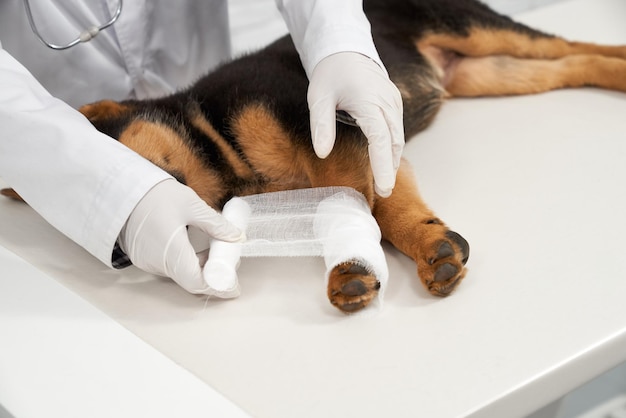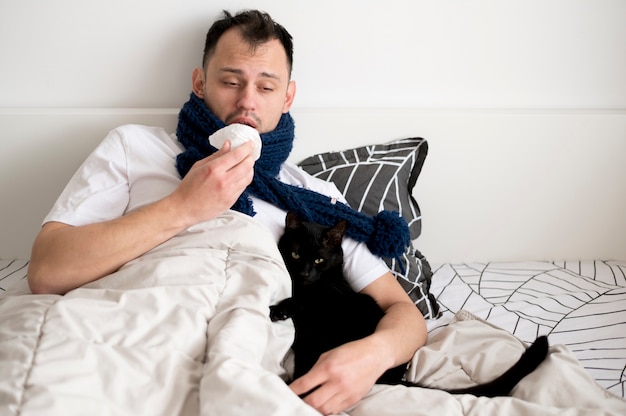Understanding Laceration Repair Surgery for Pets

Understanding Laceration Repair Surgery for Pets
Accidents are an unavoidable part of life for our furry companions, whether it’s a playful romp at the park, a scuffle with another animal, or a sharp object encountered at home. When your pet experiences a cut or wound, quick and effective care is crucial to prevent complications and ensure a smooth recovery. At VetCheck Pet Urgent Care in Fishers, IN, we understand how alarming it can be to see your pet hurt and bleeding. Our veterinary professionals are committed to providing fast, compassionate laceration repair surgery for pets, helping your dog or cat heal comfortably and safely.
In this guide, we’ll walk you through how to recognize when your pet needs urgent wound treatment, what laceration repair surgery entails, and how seeking care at an urgent care vet near me can dramatically reduce the risk of infection or complications. We’ll also share practical tips for pet owners on what you can do at home and when it’s time to seek immediate veterinary support. Remember, at VetCheck Pet Urgent Care, walk-ins are always welcome and no appointment is needed—our team is here when your regular vet isn’t, offering urgent care for pets in Fishers, IN and surrounding communities. If you’d like to learn more about how we treat pet injuries, you can read about our laceration repair surgery services on our website.
Recognizing When Your Pet Needs Laceration Repair Surgery
When your pet suffers a cut or wound, it’s not always obvious whether professional care is required. Some minor scrapes can be managed at home, but deeper or more extensive injuries may call for urgent veterinary attention. Key signs that your pet may need laceration repair surgery include persistent bleeding that does not stop within several minutes, wounds with gaping edges, visible muscle or tissue beneath the skin, and signs of pain or distress such as whimpering, limping, or reluctance to move. Additional warning signs are wounds that are contaminated with dirt or debris, cuts located near joints or vital structures, and injuries that quickly become swollen, red, or start to ooze pus.
If your pet is excessively licking or chewing at the wound, or if you notice any foul odor coming from the site, these may indicate infection or tissue damage that requires immediate intervention. In the context of pet wound treatment urgent care, swift recognition of these symptoms can make a significant difference in your pet’s outcome. For dog and cat owners in Fishers, IN, knowing the signs helps you decide when to seek help from an emergency veterinarian near me without delay.
Common Scenarios Leading to Lacerations
Everyday situations can put your pet at risk for lacerations. Examples include a curious dog getting snagged on a fence, a playful cat suffering a scratch during a tussle with a housemate, or a pet stepping on broken glass during a backyard adventure. Even indoor pets can experience lacerations from sharp furniture, grooming mishaps, or accidental encounters with household items. Recognizing these common scenarios can help you stay vigilant and react quickly if your pet is injured.
Understanding the Causes of Pet Lacerations
Lacerations are cuts or tears in the skin that can range from superficial scrapes to deep wounds involving underlying tissues. The causes of lacerations in pets are varied, but they often result from contact with sharp objects such as glass, metal, or wire, animal bites and scratches, or traumatic incidents like car accidents or falls. In some cases, pets develop wounds due to chronic scratching or biting, which may be linked to allergies, parasites, or skin infections.
Environmental factors in Fishers, IN and similar Midwestern communities, such as icy sidewalks in winter, dense underbrush during spring hikes, or construction debris in growing neighborhoods, can increase the risk of pet injuries. By understanding what puts your pet at risk, you can take steps to minimize hazards around your home and during outdoor activities.
Why Immediate Care Matters
When a laceration occurs, bacteria and contaminants can enter the wound, leading to infection, delayed healing, and possible complications such as abscess formation. The sooner a wound is evaluated and cleaned by veterinary professionals, the better the chances are for a full recovery without complications. That’s why pet wound treatment urgent care in Fishers, IN is so important; prompt attention reduces the risk of infection and helps your pet heal more comfortably.
What to Expect: Laceration Repair Surgery for Pets
If your pet requires laceration repair surgery, you may feel anxious about what the procedure involves. At VetCheck Pet Urgent Care, our veterinary team is equipped with advanced in-house diagnostics and surgical expertise to treat wounds efficiently, minimizing stress for both pets and their families. Laceration repair often starts with a thorough examination and cleaning of the wound, sometimes requiring sedation or anesthesia to keep your pet calm and pain-free. The veterinary professionals will remove any debris, assess the extent of the injury, and determine if deeper tissue layers are affected.
Treatment approaches involve carefully suturing the wound edges to promote proper healing, placing drains if necessary to prevent fluid accumulation, and administering pain relief and antibiotics to combat infection. In some cases, additional therapies like bandaging, topical treatments, or follow-up care may be recommended. For wounds with extensive contamination or delayed presentation, more complex pet soft tissue surgery may be needed, and you can learn about the full range of surgical options on our pet soft tissue surgery page.
The Role of In-House Diagnostics
Accurate assessment is crucial for laceration repair surgery in pets. Our in-house diagnostics allow for rapid evaluation of wound severity, detection of underlying injuries such as fractures or tendon involvement, and identification of systemic concerns like infection or underlying illness. This swift access to diagnostic tools ensures your pet receives the most appropriate and timely care. To see how we use diagnostics for wound management, visit our in-house diagnostics services page.
The Recovery Process
After laceration repair surgery, your pet will need time to heal. Most pets recover quickly when wounds are properly closed and infection is prevented. You may notice your pet wearing an Elizabethan collar to prevent licking, and the veterinary team will provide guidance for at-home care, including cleaning instructions, medication administration, and signs to watch for that could indicate a problem. Regular rechecks may be suggested to ensure the wound is healing as expected.
Preventing Lacerations and Supporting Healing at Home
While not all accidents are avoidable, there are steps you can take to reduce the risk of lacerations in your pet. These steps include keeping your yard and home free of sharp objects, supervising outdoor playtime, ensuring fences and gates are secure, and monitoring interactions with other animals. If your pet is prone to skin issues or allergies, addressing these underlying problems can help prevent self-inflicted wounds from scratching or biting.
At home, if your pet does sustain a minor cut, gently clean the area with warm water and apply pressure with a clean cloth to control any bleeding. Avoid using hydrogen peroxide or alcohol, as these products can damage healthy tissue. Monitor the wound closely, watch for changes such as swelling, redness, or discharge, and prevent your pet from licking or chewing the area. However, for any wound that is deep, bleeding heavily, or showing signs of infection, immediate veterinary attention is essential.
Promoting a Safe Environment
Regularly inspect your living space for hazards, especially if you have a curious puppy or kitten. Seasonal changes, such as winter ice or summer yard work, can introduce new risks for cuts and scrapes. By staying proactive, you help ensure your pet’s safety and reduce the chances of needing emergency wound care services in Fishers, IN or nearby areas.
When to Seek Urgent Veterinary Care
Knowing when to seek professional help can be the difference between a minor issue and a serious complication. If your pet’s wound is deep, will not stop bleeding, or reveals muscle, bone, or fat, immediate care is absolutely necessary. Additional red flags include wounds with jagged or separated edges, injuries contaminated with dirt or debris, and wounds that begin to emit a foul odor or ooze pus. If your pet shows signs of shock—such as pale gums, rapid breathing, or sudden weakness—seek urgent care without delay.
Pet owners in Fishers, IN and surrounding communities can rely on our veterinary professionals for prompt laceration repair surgery pets need to recover. Remember, you do not need an appointment at VetCheck Pet Urgent Care. Walk-ins are always welcome, including after-hours or weekends when your regular veterinarian may not be available. If you’re uncertain whether your pet’s wound needs professional attention, err on the side of caution and bring them in for an assessment; it’s always better to be safe than sorry. More details about our immediate support for acute pet injuries can be found on our emergency and urgent care services page.
Compassionate, Immediate Pet Wound Treatment in Fishers, IN
Your pet’s health and comfort are our top priorities at VetCheck Pet Urgent Care in Fishers, IN. Laceration repair surgery for pets is a critical service that can prevent complications, speed healing, and get your four-legged friend back to their playful self. Our veterinary team is equipped to handle wounds of all types, offering advanced pet wound treatment urgent care in Fishers, IN, Carmel, Noblesville, Westfield, and the surrounding region.
If you find yourself searching for an emergency vet near me or urgent care vet near me after your pet suffers an injury, remember that VetCheck Pet Urgent Care is always here for you—no appointment necessary and walk-ins always welcome. Visit our laceration repair surgery page to learn more about how our team can help, or call us at (317) 572-7557 for immediate guidance. Let us help you ensure your pet receives the timely, expert wound care they deserve—because when emergencies happen, every moment counts.
This article is intended for informational purposes only and should not be considered a substitute for professional veterinary advice, diagnosis, or treatment. Always consult with a veterinarian for concerns about your pet’s health or before acting on any medical information provided here.
References:
















